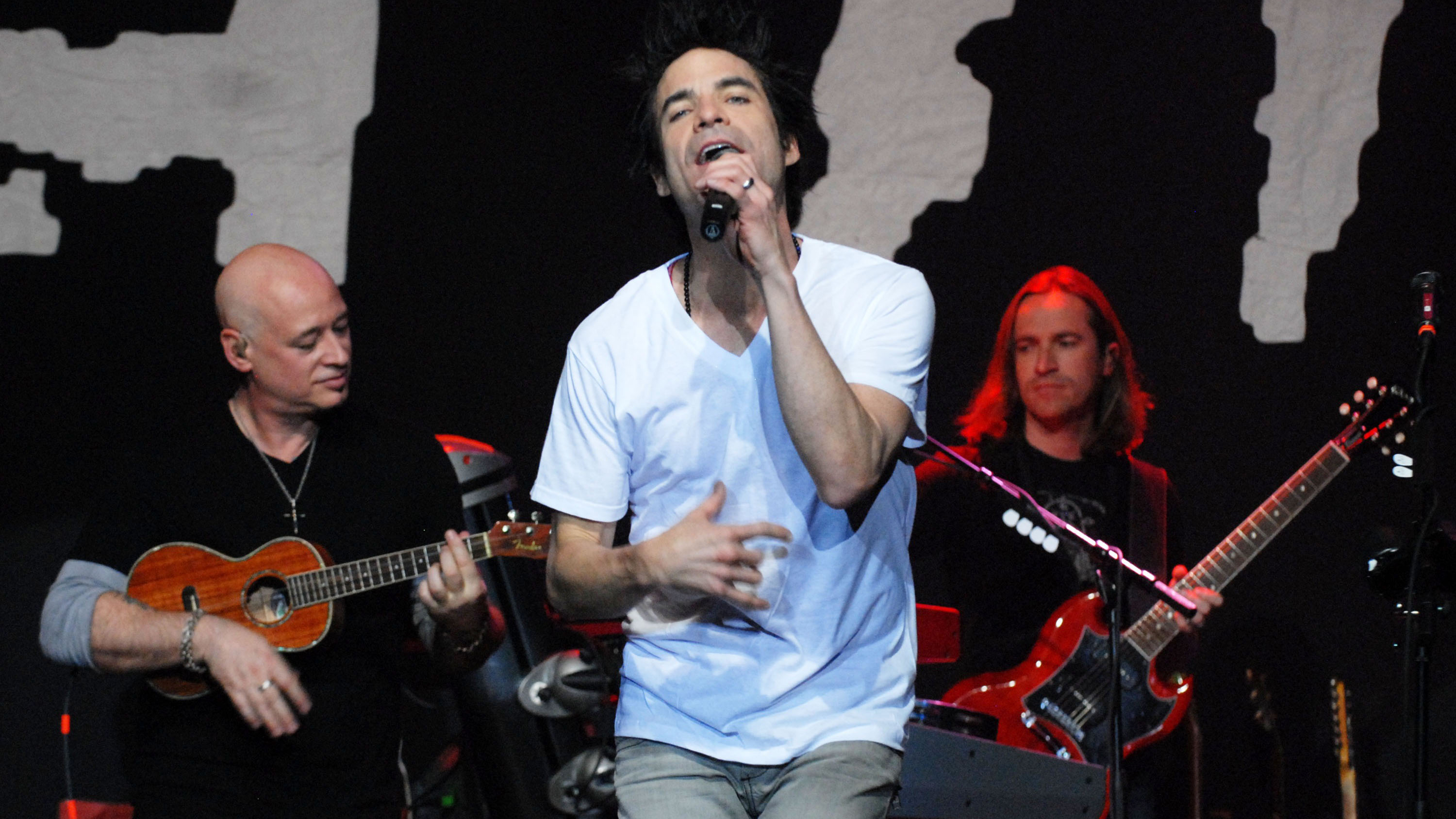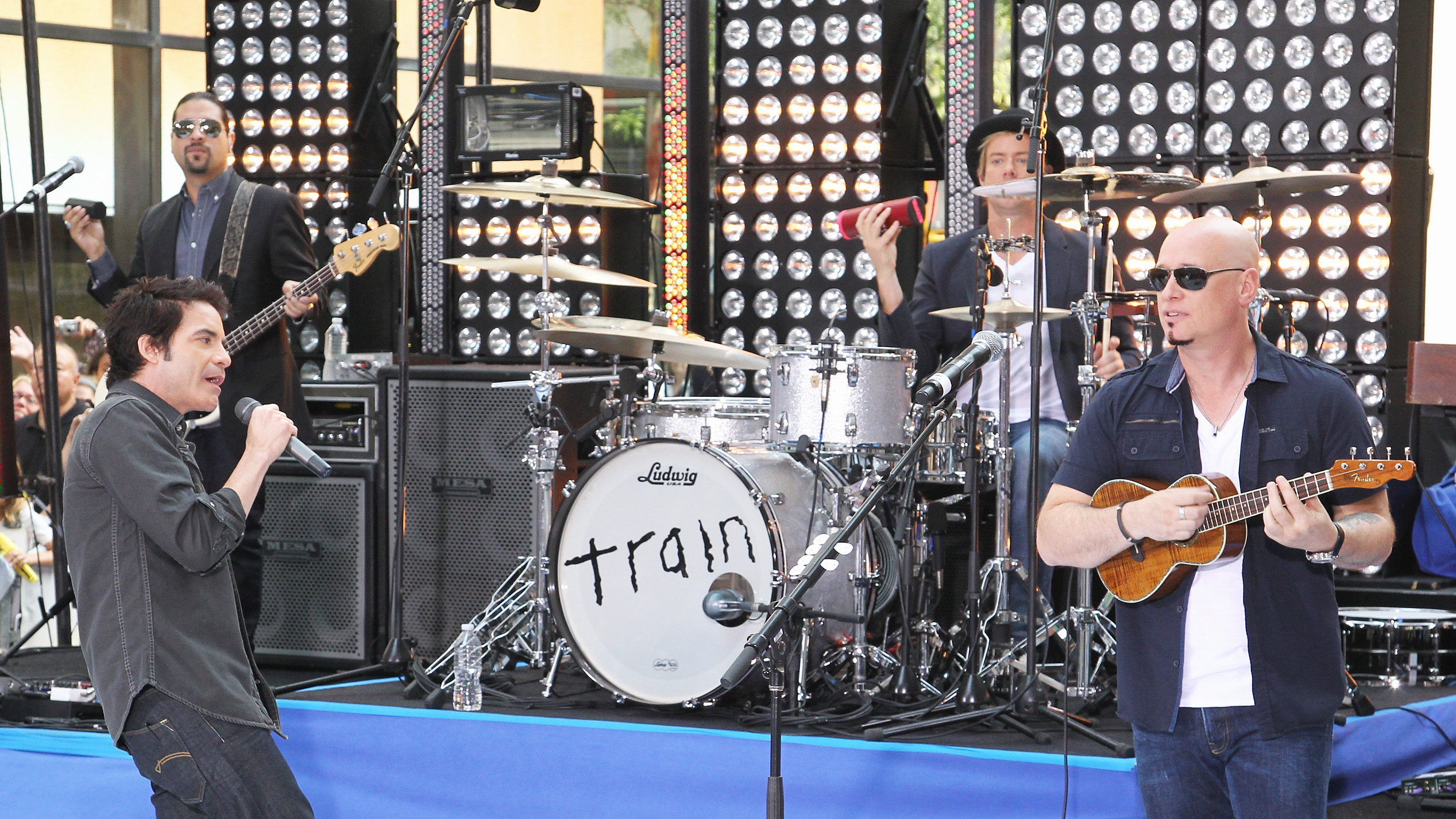“The A&R and the label actually didn’t like it. They were like, ‘Yeah, yeah, it’s a fun song, but it’s never going to get on the radio'": How Train went from nearly splitting up to proving them wrong with smash hit Hey, Soul Sister
Co-writer Espen Lind on how he got the ukulele back into the charts – after saving the song with it

Want all the hottest music and gear news, reviews, deals, features and more, direct to your inbox? Sign up here.
You are now subscribed
Your newsletter sign-up was successful
In the last couple of decades at least, hit records don’t really come much bigger than Train’s ukulele-toting ode to love, Hey, Soul Sister. The song’s list of accolades includes No 1 in 16 countries, more than five million record sales, plus being the most downloaded song in Columbia Records’s history as well as the bestselling track on iTunes in 2010. What’s even more incredible is the fact that the band had just completed a three-year hiatus, during which time they were thinking about throwing in the towel altogether.
Indeed, by Train’s lofty standards, 2006’s For Me, It’s You record had been such a commercial disappointment that a lengthy break and some major rethinking was deemed pretty much essential. After ditching their management, shaving a few members from their line-up and enlisting a handful of top-notch writers and
producers, Train were once again ready to take on the world.
US-based Norwegian production duo Espen Lind and Amund Bjørklund – known collectively as Espionage – ended up writing and producing two of the songs on 2009’s Save Me, San Francisco. And while the album itself more than made up for the failure of its predecessor, it was Hey, Soul Sister that put Train firmly back on track.
We were huge fans of the band and, for me, Drops Of Jupiter is a modern classic
“We were huge fans of the band and, for me, Drops Of Jupiter [the title track from Train’s 2001 sophomore album] is a modern classic,” explained Lind to Total Guitar in 2011. Lind had already co-written scores of hit songs, including a 2006 global smash for Beyoncé Knowles, Irreplaceable. “We were hooked up with the band by the A&R guy on the record, a guy called Pete Ganbarg...
"He contacted us and asked, ‘Do you want to try to write something with Pat Monahan, the singer?’ And we said, ‘Yeah, sure!’ So we hooked up at our studio in New York and started writing. I think we probably wrote about five or six songs
over the course of about a couple of months and Hey, Soul Sister was, like, the last song we completed. It was completed around midnight on our very last day!”
It took only a few hours to write the song from start to finish. Train frontman Monahan and the Espionage team were in the last throes of wrapping up a few tracks at New York’s Quad Recording Studios when inspiration hit.
When we listened back to it with the music I put down, it sounded all right, but it wasn’t amazing
“Pat came in and said, ‘I want to play something completely different today – I want to try to do something more dancey with a backbeat,’” remembered Lind. “He was referencing old '80s records, like INXS, and old sort of four-on-the-floor beats, so we started playing around with something like that. I came up with the music and he started ad-libbing over the top of it.
Want all the hottest music and gear news, reviews, deals, features and more, direct to your inbox? Sign up here.
"He came up with the lyric, ‘Hey, soul sister’ and the basic outline for the melody, but when we listened back to it with the music I put down, it sounded all right, but it wasn’t amazing.”

Then Lind brought out one of his favourite stringed instruments. “I just love the ukulele – it’s a great instrument for anything from doing simple overdubs to melody lines to just picking up the energy in the control room,” he said, “and we had Pat lay down a scratch vocal.
I remember, in the control room, me and my partner, Amund, and Pat... we all sort of flipped out, because it sounded so cool and so fresh and so new
"Then I just stripped away all the music underneath, put down the kick drumbeat, and then I just grabbed the ukulele, started playing around with new chords underneath the stuff that he was singing. And then, all of a sudden, the song was there. I remember, in the control room, me and my partner, Amund, and Pat... we all sort of flipped out, because it sounded so cool and so fresh and so new!”
Although Jimmy Stafford, Train’s co-founder and then-guitarist, wasn’t present at this initial session, where Lind cut the single track of ukulele on his KoAloha Concert Uke, he added the electric guitar overdubs at a later point.
“The tracking of the guitars was done by Gregg Wattenberg, who did a couple of the final overdubs, including the drum kit, at the end,” says Lind. “I know Jimmy plays a lot of Telecasters, and those jangly electric guitars from the second chorus out sound like a Telecaster – maybe through an AC30. That’s me just guessing, but that’s probably what it is.”
Lind did, however, later find the time to give Stafford a bit of a heads up on the old uke. “[Jimmy] was kind of new to the ukulele at first,” he explained. “But I remember giving him a quick rundown of the chords and the voicings and everything, and I think he really fell in love with it when he got to know it!”
I have to hand it to Pat Monahan and Train’s manager, Jonathan Daniel, who both loved the song and really fought for it
When Lind looks back at Hey, Soul Sister, he is not only immensely proud of the song, he will also be forever thankful that it was released as a single despite the firm opposition of Columbia Records at the time.
“The A&R and the label actually didn’t like it,” Lind recalled. “They were like, ‘Yeah, yeah, it’s a fun song, but it’s never going to get on the radio; it sounds way too weird! It’s not going to work!’ But I have to hand it to Pat Monahan and Train’s manager, Jonathan Daniel, who both loved the song and really fought for it. They said, ‘No, this is going to be the first single off the album!’ and they stood their ground and they got their way. And now the song has sold millions worldwide, and has extended the band’s career for many, many years!”


